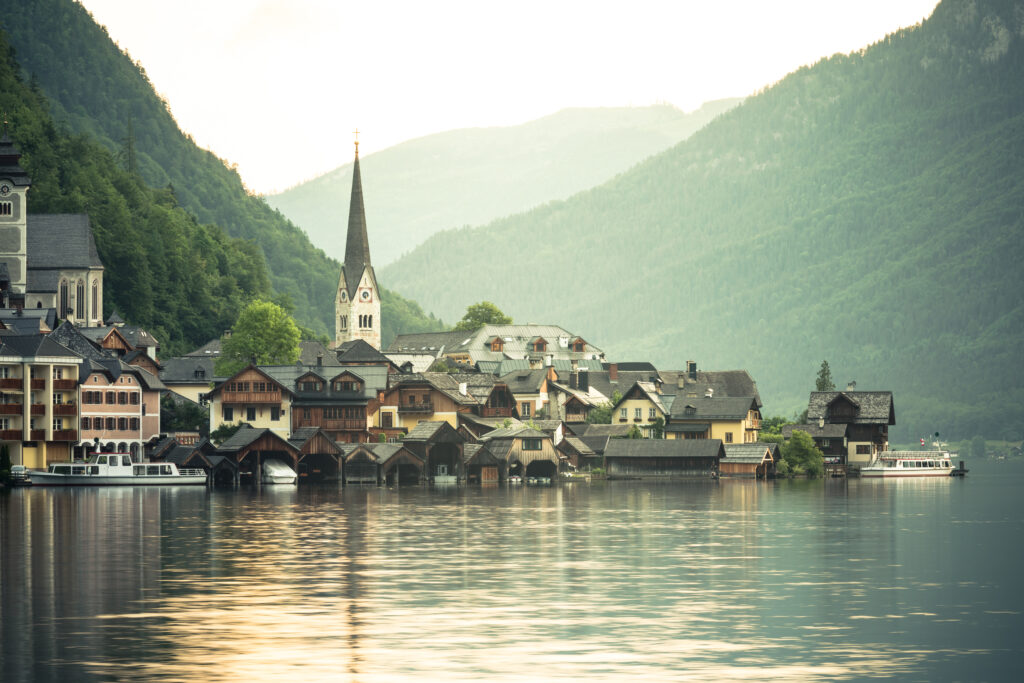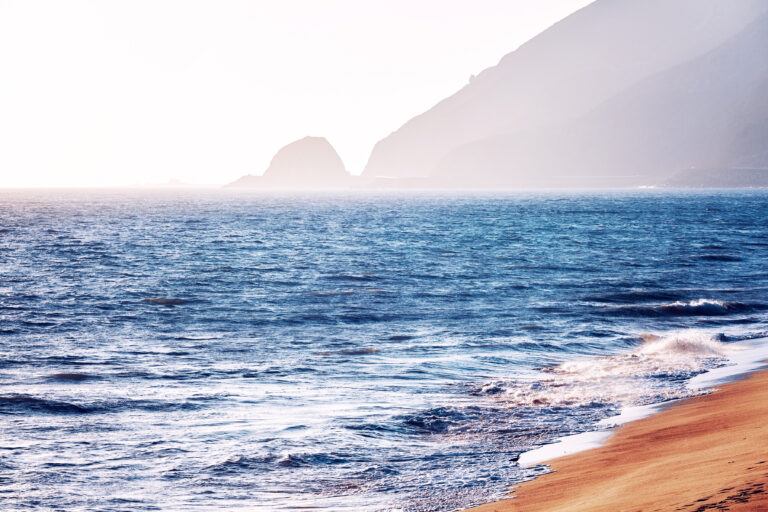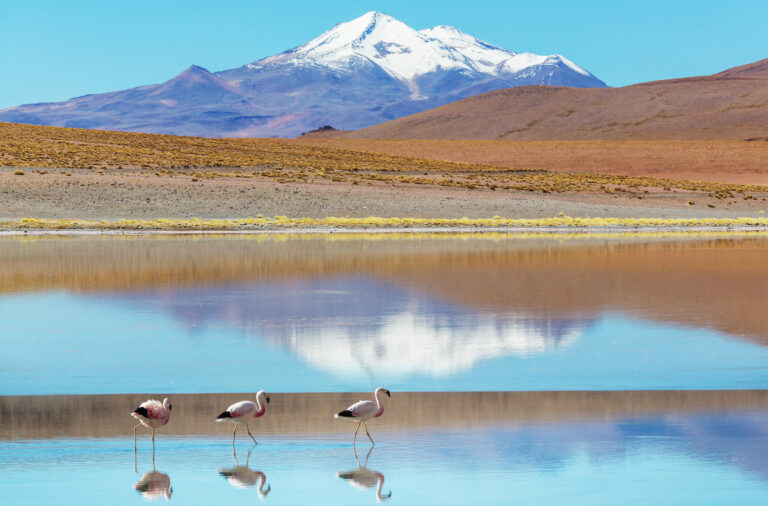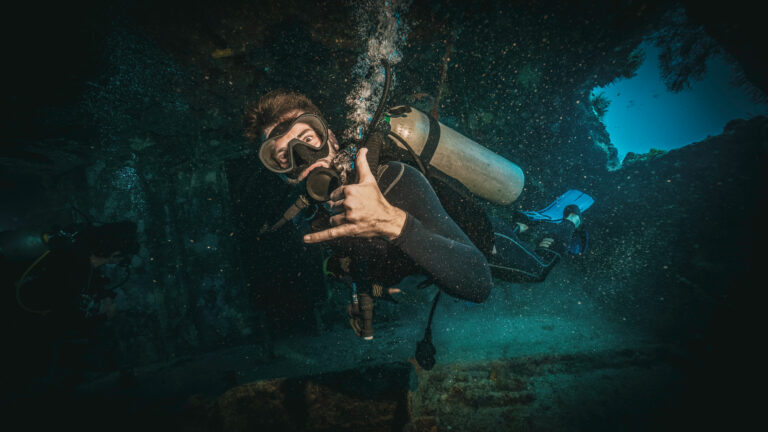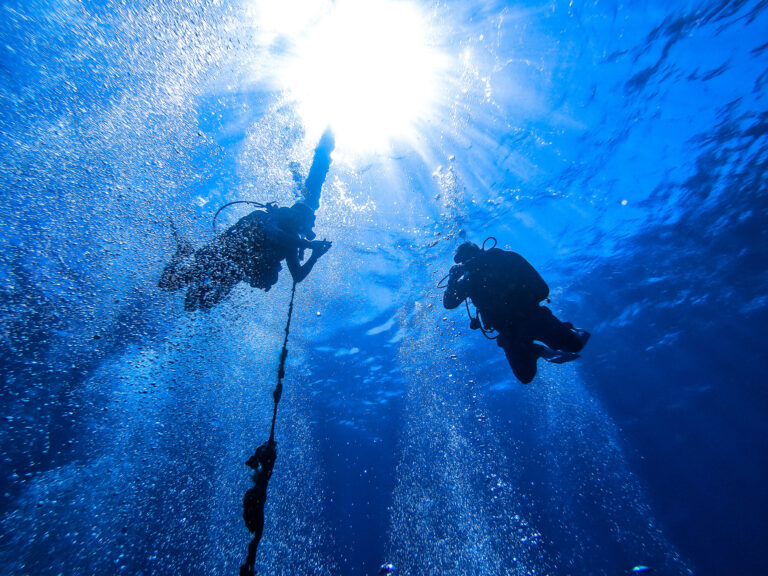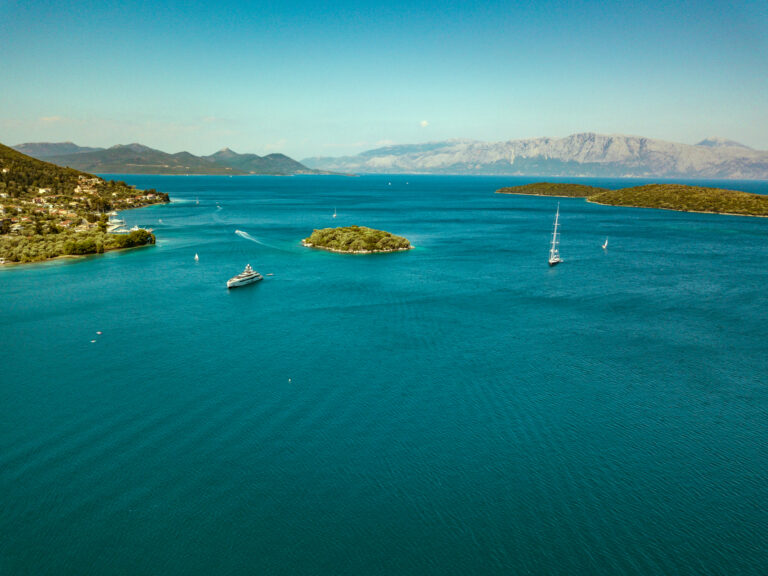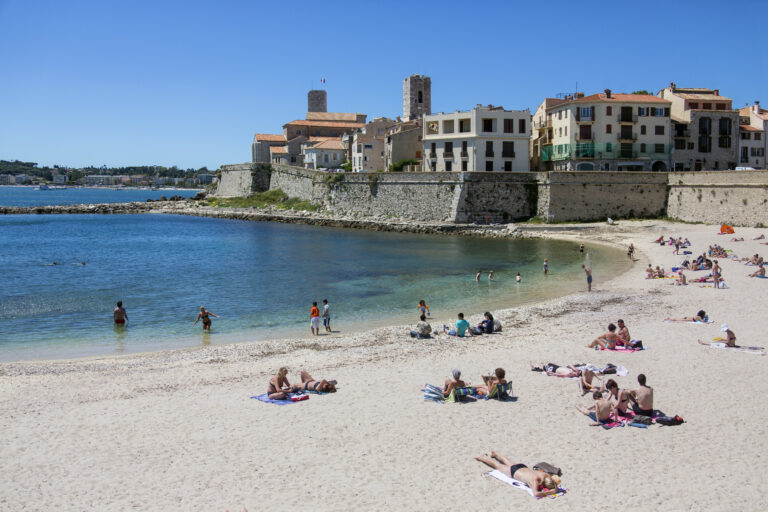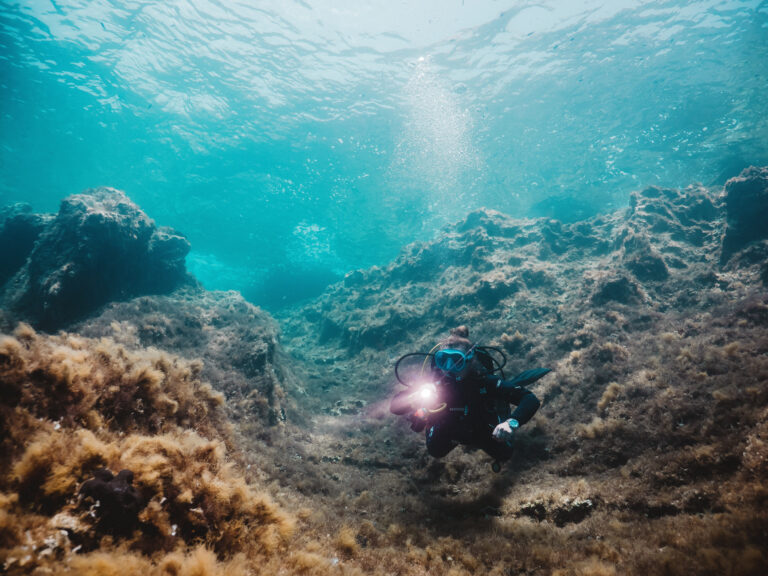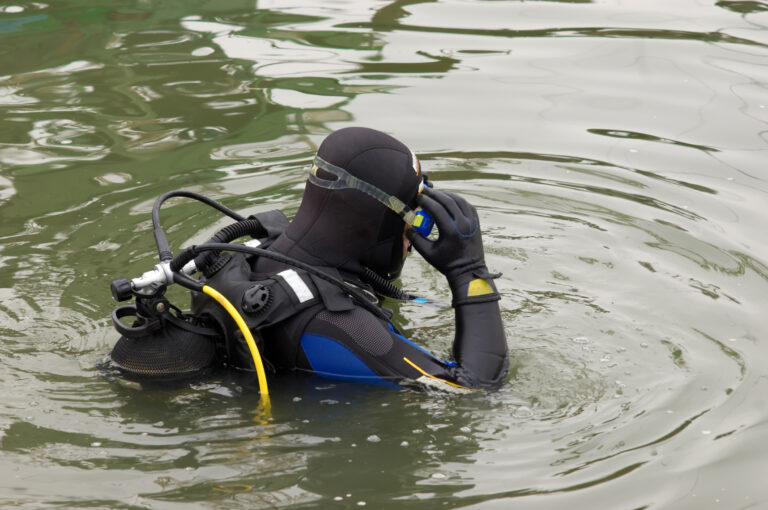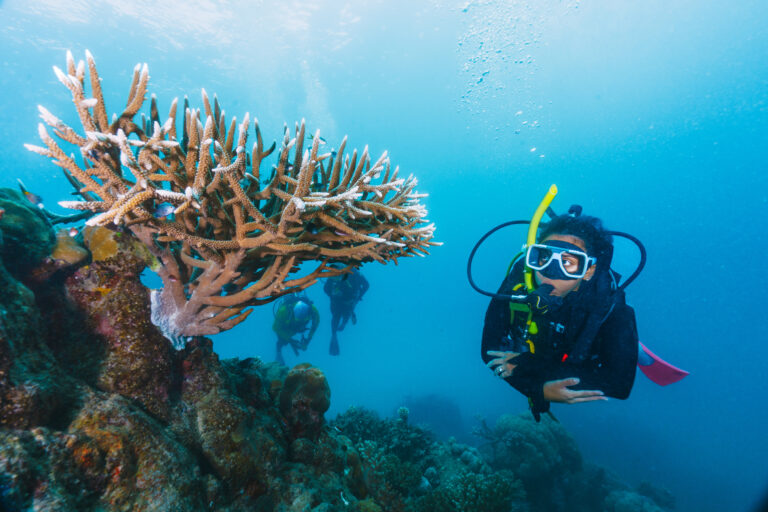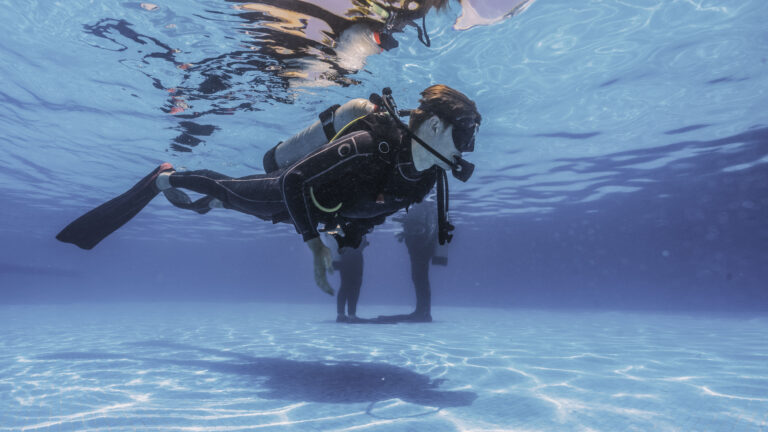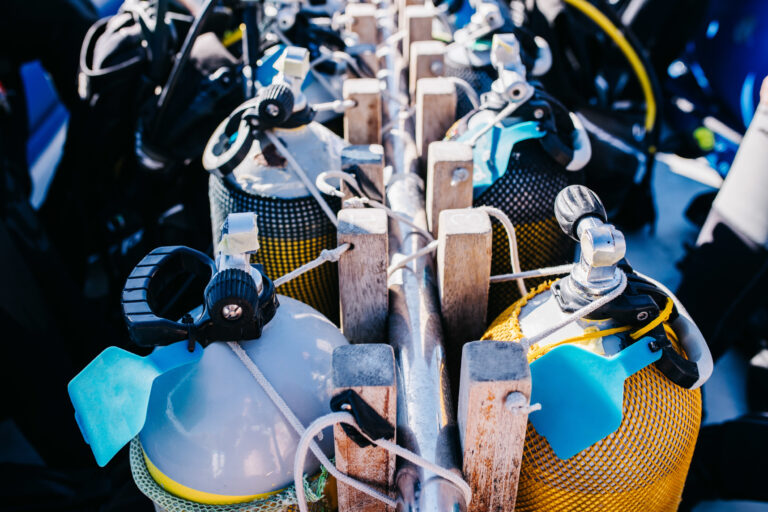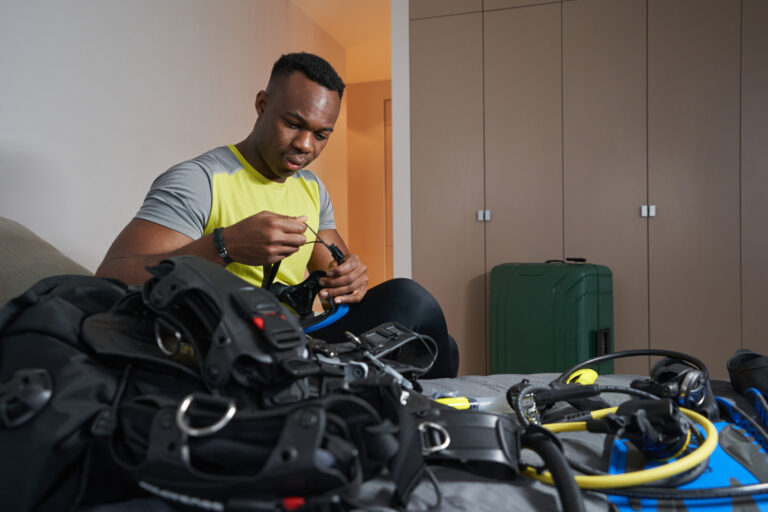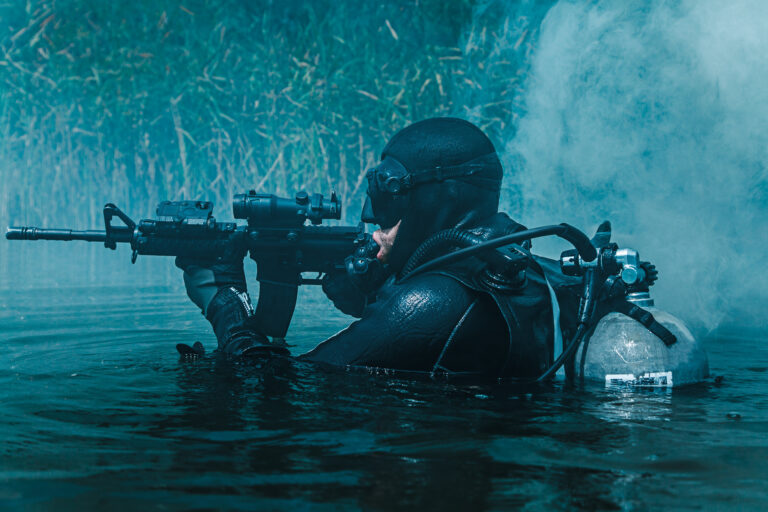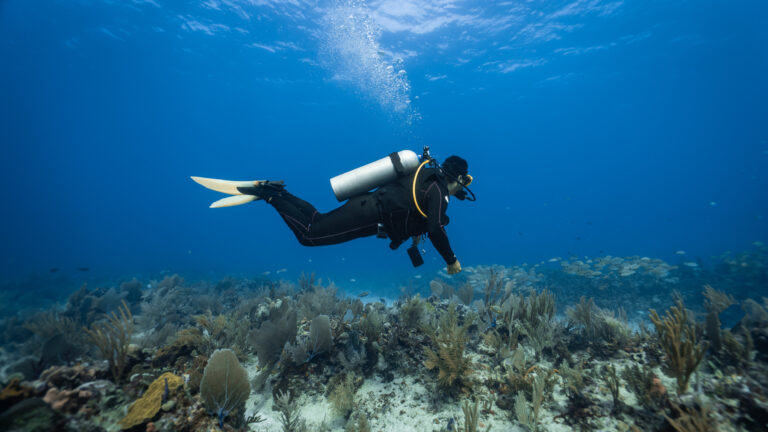SCUBA DIVERS’ TRAVEL GUIDE TO Austria
Austria may not be the first destination that comes to mind when you think of scuba diving, but this landlocked country in Central Europe has some surprising underwater attractions to offer. From crystal-clear alpine lakes to flooded mines and quarries, Austria has a variety of dive sites that cater to different levels of experience and interest. You can explore the underwater world of Austria in all seasons, as some dive sites are accessible even in winter. Whether you want to dive among trout and pike, see sunken wrecks and sculptures, or marvel at the stunning scenery above and below the water, Austria has something for every scuba diver who loves adventure and diversity.
LOCATION AND GEOGRAPHY
Austria, a landlocked country nestled in the heart of Europe, may not be the first destination that comes to mind for scuba diving enthusiasts seeking tropical reefs or oceanic depths. However, this Alpine nation offers a unique underwater experience, characterized by its crystal-clear freshwater lakes and rivers. The most notable diving locations are found in the regions of Salzkammergut and Tyrol, where lakes such as Attersee, Traunsee, and Wolfgangsee boast visibility that can exceed 20 meters, revealing a fascinating underwater world of rock formations, sunken forests, and freshwater marine life. The Grüner See, or “Green Lake,” is particularly famous for its seasonal transformation, where springtime snowmelt floods the park, submerging trees, benches, and paths to create an ethereal underwater landscape. Austria’s geography, with its high-altitude lakes and cold mountain waters, offers a distinct and memorable diving experience that contrasts sharply with the typical sea dive, providing both challenges and rewards for the adventurous diver.
VISA AND ENTRY REQUIREMENTS
Austria, nestled in the heart of Europe, is not typically renowned for scuba diving adventures, given its landlocked geography. However, for those looking to explore the crystal-clear waters of its alpine lakes, such as Lake Attersee or Grüner See, it’s important to note the visa and entry requirements. As a member of the European Union and the Schengen Area, Austria allows many travelers to enter visa-free for stays of up to 90 days for tourism or business purposes. This includes citizens from other EU countries, the United States, Canada, Australia, and Japan, among others. Travelers from countries that do not have a visa exemption agreement with the Schengen states will need to apply for a Schengen visa prior to arrival. It’s essential to check the latest requirements with the Austrian embassy or consulate in your home country, as regulations can change. Additionally, ensure your passport is valid for at least six months beyond your planned departure date from the Schengen area and that you have proof of onward travel, as these are standard entry requirements.
GETTING TO Austria
Austria, nestled in the heart of Europe, is not typically renowned for its scuba diving, given its landlocked geography. However, for those eager to explore its underwater treasures, such as Grüner See (Green Lake), getting there is a straightforward affair. The country is well-connected by air, with Vienna International Airport serving as the main gateway for international travelers. From there, domestic travel options abound, including trains, buses, and car rentals, all providing efficient means to traverse the picturesque Austrian landscape. For those diving in alpine lakes, a scenic drive through the mountainous regions is often required. Austria’s central location also makes it easily accessible by road or rail from neighboring countries, such as Germany, Italy, Switzerland, and Hungary, allowing divers to combine their Austrian underwater adventure with a broader European itinerary.
BEST TIME TO DIVE
Austria, a landlocked country renowned for its alpine beauty, may not be the first destination that comes to mind for scuba diving, yet it offers a unique underwater experience, particularly in its crystal-clear freshwater lakes. The best time to scuba dive in Austria is during the summer months, from June to August, when the water temperatures are more comfortable, ranging from 18°C to 22°C (64°F to 72°F). Visibility in lakes such as Attersee, Traunsee, and Wolfgangsee is at its peak during this period, often exceeding 20 meters, allowing divers to fully appreciate the surreal underwater landscapes and rich aquatic life. While winter diving is also possible for those willing to brave the cold with appropriate dry suits, the summer season provides not only the best conditions for diving but also the vibrant atmosphere of Austrian lakeside culture, with ample opportunities for relaxation and exploration above the surface.
ACCOMMODATION OPTIONS
Austria, while landlocked, offers a unique scuba diving experience in its crystal-clear alpine lakes, and as such, accommodation options cater to a range of preferences. Divers can choose from charming lakeside hotels and guesthouses that often provide stunning views and easy access to dive sites, such as those around Lake Attersee, a favorite among divers for its underwater visibility and intriguing dive spots. For a more immersive experience, rustic alpine huts and inns are available, allowing divers to stay close to nature and often providing facilities to clean and store equipment. In the larger towns like Salzburg or Innsbruck, which are within reach of various dive sites, a broader selection of accommodations can be found, including luxury resorts, boutique hotels, and private vacation rentals. Many of these establishments are accustomed to the needs of divers, offering early breakfast options for those looking to start their underwater adventures at dawn, as well as packed lunches for day trips. Regardless of the choice, the Austrian hospitality is known to warmly welcome divers after a day spent exploring the depths of its freshwater treasures.
DIVE OPERATORS AND DIVE SHOPS
Austria, a landlocked country renowned for its alpine beauty, may not be the first destination that comes to mind for scuba diving, yet it offers a unique underwater experience in its crystal-clear freshwater lakes. Dive operators and shops in Austria are well-equipped to guide divers through these extraordinary inland waters. They provide a range of services from equipment rental to certification courses, ensuring both novice and experienced divers can explore the submerged wonders safely. Austrian dive shops typically offer excursions to popular sites like the Grüner See (Green Lake), which transforms into a diver’s paradise in spring, or the Attersee, Austria’s largest lake known for its visibility and underwater attractions. These operators are accustomed to the country’s cooler water temperatures and provide appropriate gear such as thicker wetsuits or drysuits. With a focus on personal attention and safety, Austrian dive operators are adept at creating memorable diving adventures that highlight the country’s unexpected yet captivating underwater landscapes.
TRANSPORTATION WITHIN Austria
While Austria is a landlocked country and may not be the first destination that comes to mind for scuba diving, it offers unique freshwater diving experiences in its alpine lakes. Transportation within Austria is efficient and convenient, making access to dive sites straightforward for travelers. The country’s well-connected rail system, ÖBB (Österreichische Bundesbahnen), provides scenic routes to many regions with dive sites, such as the crystal-clear Lake Attersee or the Grüner See, famous for its underwater park during the spring. For more remote locations, renting a car might be the best option, offering flexibility to explore at your own pace. Additionally, local dive shops often provide transport services to and from dive sites for their customers. Whether you’re relying on public transport or driving, Austria’s compact size and well-maintained infrastructure ensure that your journey to the next underwater adventure is as smooth as the tranquil waters of its mountain lakes.
CURRENCY AND PAYMENT METHODS
While Austria is a landlocked country and may not be the first destination that comes to mind for scuba diving, it offers unique freshwater diving experiences in its alpine lakes, such as Lake Attersee. When planning your scuba diving trip to Austria, it’s important to note that the country uses the Euro (€) as its official currency. Credit and debit cards are widely accepted in cities and tourist areas, and ATMs are readily available for cash withdrawals. However, when visiting more remote dive sites or dealing with smaller dive operators, it’s advisable to carry cash, as card facilities may not always be available. It’s also worth mentioning that in some cases, dive centers may offer discounts for cash payments. Always ensure you have a mix of payment methods and inform your bank of your travel plans to avoid any issues with card transactions while abroad.
LANGUAGE AND COMMUNICATION
While Austria is a landlocked country, it offers unique freshwater diving experiences in its crystal-clear lakes and rivers. When diving in Austria, it’s important to note that the primary language spoken is German, and this extends to the diving community as well. Dive briefings, instructional materials, and signage are typically in German, although many dive centers and instructors are accustomed to international visitors and can provide assistance in English. It’s advisable for non-German-speaking divers to learn a few basic German diving terms or to ensure that they are diving with a guide who can communicate effectively in their preferred language. Additionally, the universal language of hand signals used by divers worldwide remains a reliable method of underwater communication. Whether exploring the submerged alpine landscapes or engaging with the local diving community, clear communication will enhance safety and overall enjoyment of the Austrian diving experience.
LOCAL CULTURE AND ATTRACTIONS
Austria, landlocked and adorned with towering Alps, may not be the first destination that springs to mind for scuba diving, yet it offers a unique underwater experience in its crystal-clear mountain lakes. While Austria lacks a coastline, its local culture and attractions more than compensate for the avid traveler. After a day spent exploring the serene depths of Lake Attersee or Grüner See, where divers can glide over submerged meadows and forests during the spring melt, you can immerse yourself in the rich tapestry of Austrian life. Indulge in the culinary delights of local taverns, savoring dishes like Wiener Schnitzel and Apfelstrudel. Embrace the historical ambiance by visiting baroque architecture, opulent palaces such as Schönbrunn, and the vibrant musical heritage that echoes through the birthplace of classical composers like Mozart and Strauss. Whether attending a traditional folk festival in a quaint alpine village or strolling through the bustling streets of Vienna, Austria’s cultural vibrancy and picturesque landscapes provide a perfect complement to its unexpected diving adventures.
CULTURAL ETIQUETTE AND TIPS
Austria, while landlocked, offers unique freshwater diving experiences in its crystal-clear lakes, such as Lake Attersee and Grüner See. When visiting Austria for scuba diving, it’s important to respect the local customs and etiquette. Austrians generally value punctuality, so be sure to arrive on time for your dives and any arranged training sessions. Greet your dive operators and fellow divers with a firm handshake and maintain eye contact, as this is a sign of respect in Austrian culture. It’s also polite to use formal titles such as “Herr” (Mr.) or “Frau” (Mrs./Ms.) followed by the surname until invited to use first names. Environmental conservation is taken seriously, so ensure you adhere to all guidelines regarding the protection of aquatic life and the cleanliness of the lakes. Lastly, tipping is appreciated but not mandatory; however, if you receive exceptional service, a tip of around 5-10% is customary to show your gratitude.
LOCAL LAWS AND REGULATIONS RELEVANT TO TOURISTS
When planning a scuba diving trip to Austria, it’s essential to familiarize yourself with the local laws and regulations to ensure a safe and lawful experience. Austria, being a landlocked country, offers unique freshwater diving opportunities in its lakes, such as Lake Attersee, which is renowned for its clear waters and underwater attractions. Divers should be aware that a ‘Tauchschein’ (diving permit) is often required to dive in certain lakes, and these can be obtained from local dive shops or authorities. Regulations regarding dive sites can be strict; for instance, some areas may be protected for environmental reasons and off-limits to divers. It’s also important to respect altitude diving guidelines, as many Austrian lakes are at a higher elevation. Dive flags are generally mandatory to alert boats to the presence of divers below. Additionally, ensure that you carry proof of your diving certification and understand the rules regarding dive equipment, as some lakes have restrictions on the use of lights and cameras to preserve the underwater ecosystem. Always check with local dive operators for the most current information, as regulations can change and may vary from one region to another.
SAFETY TIPS AND EMERGENCY CONTACTS
When diving in Austria’s freshwater lakes and rivers, safety is paramount. Always check your equipment thoroughly before each dive and ensure you’re familiar with the local dive site conditions, such as water temperature, visibility, and potential underwater hazards. It’s crucial to never dive alone; use the buddy system and maintain good communication with your partner. Be aware of the altitude of some Austrian dive sites, as diving at elevation requires special considerations and adjustments to your dive plan to prevent decompression sickness. Keep a dive flag visible when underwater to alert boats and other water users to your presence. In case of an emergency, know the location of the nearest hyperbaric chamber, which is often situated in larger hospitals or specialized clinics. Store the contact information for local emergency services, including the Austrian emergency number (112), and ensure you have access to a phone that works in the area. Additionally, it’s wise to have the contact details of the nearest DAN (Divers Alert Network) representative, as they can provide specific advice and assistance for diving-related injuries. Always carry your dive certification and insurance information with you, and consider informing local dive centers about your dive plans for additional safety support.
HEALTH AND TRAVEL INSURANCE
When planning a scuba diving trip to Austria’s alpine lakes, it is crucial to consider health and travel insurance that covers specific diving activities. Austria’s inland dive sites, such as the Grüner See or the Attersee, offer unique experiences with clear waters and fascinating underwater landscapes, but they also come with the inherent risks associated with altitude and cold-water diving. Ensure that your insurance policy includes coverage for scuba diving-related incidents, hyperbaric treatment in case of decompression sickness, and medical evacuation if necessary. Since Austria is a landlocked country, it’s also wise to check that your policy does not exclusively cover ocean diving. Additionally, given the country’s location within the European Union, European travelers should carry their European Health Insurance Card (EHIC) for general health coverage, but be aware that this does not substitute for comprehensive travel insurance with dive-specific coverage. Always verify the depth limits and any exclusions of your policy to ensure full protection while exploring Austria’s underwater marvels.

